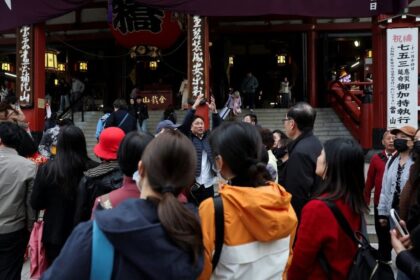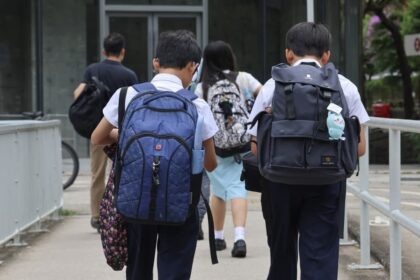Workplace Bullying of Migrant Workers in South Korea: A Crisis Escalates
South Korea, a nation celebrated for its rapid economic growth and technological innovation, is facing a mounting crisis within its labor force: the workplace bullying and harassment of migrant workers. Recent government data reveals that reported cases of workplace bullying targeting foreign workers have more than tripled since 2020, surging from 65 cases in 2020 to 225 in 2024. By May 2025, 112 new complaints had already been filed, suggesting that this year may see the highest number of reported cases yet. However, advocates and experts warn that these figures are only the tip of the iceberg, with the true scale of abuse likely far greater due to underreporting and systemic barriers to justice.
- Workplace Bullying of Migrant Workers in South Korea: A Crisis Escalates
- A Shocking Incident Brings Attention to the Issue
- Understanding the Legal Framework: The Workplace Anti-Bullying Act
- Personal Stories: The Human Cost of Workplace Bullying
- Calls for Reform: Overhauling the Employment Permit System
- Broader Context: Discrimination and Human Rights in South Korea
- In Summary
Why Are Migrant Workers Vulnerable?
Migrant workers are essential to South Korea’s economy, filling labor shortages in industries such as manufacturing, agriculture, and construction. Most come from Southeast Asia, China, and other countries, often taking on jobs that are physically demanding, low-paying, and shunned by local workers. Despite their contributions, many face discrimination, poor working conditions, and limited legal protections.
One of the key factors exacerbating their vulnerability is the structure of South Korea’s Employment Permit System (EPS). This system ties migrant workers to a single employer, severely restricting their ability to change jobs—even in cases of abuse, unpaid wages, or unsafe conditions. Without the employer’s consent, workers have limited legal grounds to transfer, leaving them trapped and often silenced by fear of retaliation or deportation.
A Shocking Incident Brings Attention to the Issue
The issue of workplace bullying among migrant workers gained renewed national and international attention in early 2025, when a video surfaced showing a Sri Lankan worker at a brick factory in Naju being tied to a stack of bricks with plastic wrap and lifted by a forklift. The footage, which quickly went viral, depicted the worker immobilized and mocked by colleagues as he was hoisted into the air. The factory head claimed it was a prank, but activists and officials condemned the act as a clear violation of human rights.
The victim, who arrived in South Korea in November 2024 on an E-9 visa, later described ongoing trauma from the incident. In an interview, he said:
“I continue to suffer headaches from the trauma of being tied to a forklift and mocked by co-workers. I was so humiliated that I do not even want to think about it.”
Human rights groups and labor advocates rallied around the case, holding press conferences and demanding accountability. President Lee Jae Myung publicly condemned the incident, calling it “unacceptable violence” and pledging firm action to protect migrant workers’ rights.
Government Response and Crackdown
In response to the public outcry, the Ministry of Employment and Labor launched an emergency investigation into the brick factory and announced a 100-day nationwide crackdown on workplace abuse and violence against foreign workers. President Lee emphasized the need for strict punishment of such “barbaric human rights violations” and called for a comprehensive review of labor rights protections for migrants.
Despite these measures, activists argue that enforcement remains inconsistent and that many abuses go unpunished due to gaps in the legal framework and the reluctance of victims to come forward.
Understanding the Legal Framework: The Workplace Anti-Bullying Act
South Korea’s Workplace Anti-Bullying Act, introduced in 2019, was designed to address harassment and abuse in the workplace. The law defines harassment as the abuse of authority that causes physical or psychological harm or worsens the work environment. Employers are required to investigate complaints, protect victims, and take corrective measures. If these duties are fulfilled, cases can be officially recorded as “no violation,” effectively closing them without penalties.
However, the law has significant limitations. It does not apply to workplaces with fewer than five employees or to workers in special employment arrangements—categories that include a large proportion of migrant workers. According to labor rights groups, about 70 percent of migrant workers in South Korea are employed at workplaces with fewer than 30 people, many of them under five. This leaves many migrants outside the law’s reach and vulnerable to abuse.
Statistics: The Numbers Behind the Crisis
Between 2020 and May 2025, the Ministry of Employment and Labor recorded over 820 harassment complaints involving migrant workers. Of these:
- Only a few dozen led to corrective orders
- Just over 10 resulted in fines
- Slightly more led to criminal referrals
- About 400 cases were withdrawn or closed with “no violation” findings
- Several hundred were placed in “other” categories, typically covering workplaces too small to fall under the law or jobs outside standard protections
Lawmakers and advocates warn that the system underreports the true extent of harassment, as many cases are resolved internally or never reported at all. Victims often fear retaliation, loss of income, or deportation if they speak out.
Personal Stories: The Human Cost of Workplace Bullying
Behind the statistics are real people enduring humiliation, trauma, and sometimes tragedy. The Sri Lankan worker in Naju is not alone. In another case earlier this year, a young Nepalese worker was found dead in his dormitory after enduring prolonged abuse at a pig farm in Yeongam, South Jeolla Province. At least 28 other migrant workers reportedly fled the same farm, citing similar mistreatment. These stories highlight the profound psychological and physical toll that workplace bullying can inflict on vulnerable workers.
Jung Young-seop, a representative from the civil society coalition Migrant Workers Solidarity for Equality, explained:
“When migrant workers ask to transfer after being abused, some employers retaliate by refusing to assign them work, resulting in no wages and often even worse treatment.”
Such retaliation is possible because of the restrictive nature of the EPS, which binds workers to their employers and limits their ability to seek better conditions elsewhere.
Barriers to Reporting and Justice
Many migrant workers are employed in small businesses, often in rural areas with poor working conditions. Reporting abuse is difficult for several reasons:
- Language barriers and lack of awareness about legal rights
- Fear of retaliation, job loss, or deportation
- Isolation and lack of support networks
- Legal gaps that exclude small workplaces from protections
Even when complaints are filed, the outcome is often unsatisfactory. Many cases end without penalties, and some are dismissed as “no violation” if employers conduct an internal investigation, regardless of the outcome for the victim.
Calls for Reform: Overhauling the Employment Permit System
Critics argue that the root of the problem lies in the Employment Permit System itself. By tying workers to a single employer, the EPS creates a power imbalance that enables abuse and discourages victims from speaking out. Amnesty International and other human rights organizations have long called for an overhaul of the system, arguing that it grants employers excessive control and strips migrant workers of basic rights.
In response to mounting pressure, the South Korean government has pledged to introduce reforms, including:
- Revising the E-9 employment visa system to give migrant workers more freedom to change jobs and extend their stays
- Extending the duration of stays in three-year terms
- Allowing job transfers under broader conditions, not just in cases of unpaid wages or physical abuse
- Increasing workplace inspections and oversight, especially in rural areas and small businesses
Labor Minister Kim Young-hoon has emphasized the importance of guaranteeing the rights of foreign workers and ensuring an equitable work environment. However, advocates caution that proposed reforms remain in early discussion stages, and systemic change is needed to address the underlying issues.
Broader Context: Discrimination and Human Rights in South Korea
The plight of migrant workers is part of a broader pattern of discrimination and human rights challenges in South Korea. According to the U.S. State Department’s 2022 Human Rights Report, racial and ethnic minorities, children of immigrants, and persons with disabilities face discrimination in various aspects of life, including employment. While the law provides for worker rights, including the right to unionize and strike, limitations persist, especially for foreign workers. Forced labor is prohibited, but exploitation continues in certain sectors, and occupational safety and health standards are not always enforced effectively.
South Korea’s rapid economic development has relied in part on the labor of migrants, yet social attitudes and legal protections have not always kept pace. Activists urge Korean society to abandon derogatory terms for foreign workers and to recognize them as integral members of the community deserving of dignity and respect.
Expert and Official Perspectives
Experts and officials agree that preemptive and systematic responses are needed to protect vulnerable workers. This includes not only legal reforms but also public education, support services, and stronger enforcement of existing laws. President Lee Jae Myung has drawn parallels to the experiences of Korean workers overseas in past decades, emphasizing that the basic human rights of migrant workers must be protected as a matter of national dignity.
“The attitude toward those in difficult situations shows the dignity of society. Relevant ministries will actively respond to human rights violations and labor exploitation.” — President Lee Jae Myung
Human rights groups are calling for the establishment of a public agency with the authority to intervene in abuse cases and provide support to victims, as well as for greater transparency and accountability in the handling of complaints.
In Summary
- Reported cases of workplace bullying and harassment of migrant workers in South Korea have more than tripled since 2020, but the true scale is likely much higher due to underreporting.
- High-profile incidents, such as the abuse of a Sri Lankan worker at a brick factory, have sparked national outrage and prompted government crackdowns and investigations.
- Legal protections under the Workplace Anti-Bullying Act do not cover many migrant workers, especially those in small businesses or special employment arrangements.
- The Employment Permit System ties workers to a single employer, creating a power imbalance that enables abuse and discourages reporting.
- The government has pledged reforms to give migrant workers more freedom to change jobs and extend their stays, but advocates say systemic change is needed.
- Experts and activists call for stronger enforcement, public education, and the recognition of migrant workers as valuable members of society deserving of dignity and rights.












